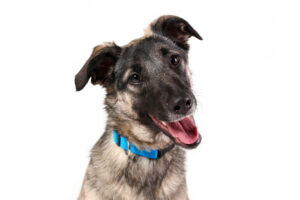
A salivary mucocele commonly affects dogs and can be a condition that is very scary for owners when it occurs, but it is easily treated with a simply surgery.
If you notice your pet developing a mass on their body, it’s going to be scary. This can also be the case with an issue known as a salivary mucocele. This issue is more commonly found in dogs, and it rarely affects cats. While the signs of a salivary mucocele can be pretty scary at first, diagnosis and treatment are fairly straightforward, and the prognosis after treatment is favorable.
What are the Signs?
The signs of a salivary mucocele include swelling underneath the jaw area (intermandibular region) or around the top of the neck (upper cervical region). This growing mass tends to be soft, flexible, and painless. This is important to note because these traits differ from a cancerous mass, which will typically be rigid and painful. Of course, the best method of diagnosis is to visit your primary veterinarian for an examination and possible testing.
How is it Diagnosed?
According to the American College of Veterinary Surgeons (ACVS), diagnosis of a salivary mucocele is often fairly straightforward. Due to the traits of the mass, most veterinarians will be able to diagnose the issue through a simple examination. However, they may want to run tests to confirm that it is not an abscess. This is commonly done with an aspiration of the fluid, giving them a clear look at it. If the mucocele has moved toward the middle of the area, your veterinarian might want to sedate your pet and lie them on their back to allow the mucocele to move back to the affected side so that they can properly determine which salivary gland is affected.
How is it Treated?
Surgical intervention is the preferred treatment for a salivary mucocele. The reason that surgery is recommended for treatment is due to the fact that the salivary mucocele will likely recur throughout the life of your companion if the fluid is only removed as a method of treatment. With surgery, the affected gland can be completely removed, and it will ensure that the problem never returns. According to the ACVS, postoperative complications are not common, and the prognosis for animals that undergo this surgery is excellent. They do not suffer from dry mouth, and are capable of living a normal life afterward.
Trust Maryland Veterinary Surgical Services With Your Companion’s Health
Your companion’s health is important, and the team at MVSS is ready to provide the best care possible for your furry family. We are dedicated to combining comprehensive exams and assessments with informative and honest discussions of your companion’s care. Once we have worked with you to decide on the best course of action for your dog, our professionals will use their surgical expertise to work towards the goal of giving your companion an active and pain-free life. We are proud to serve loyal companions in Catonsville and Baltimore. To learn more about our services, give us a call at 410-788-4088 or visit us online. For more information and tips for pet health, follow us on Facebook and Pinterest.
